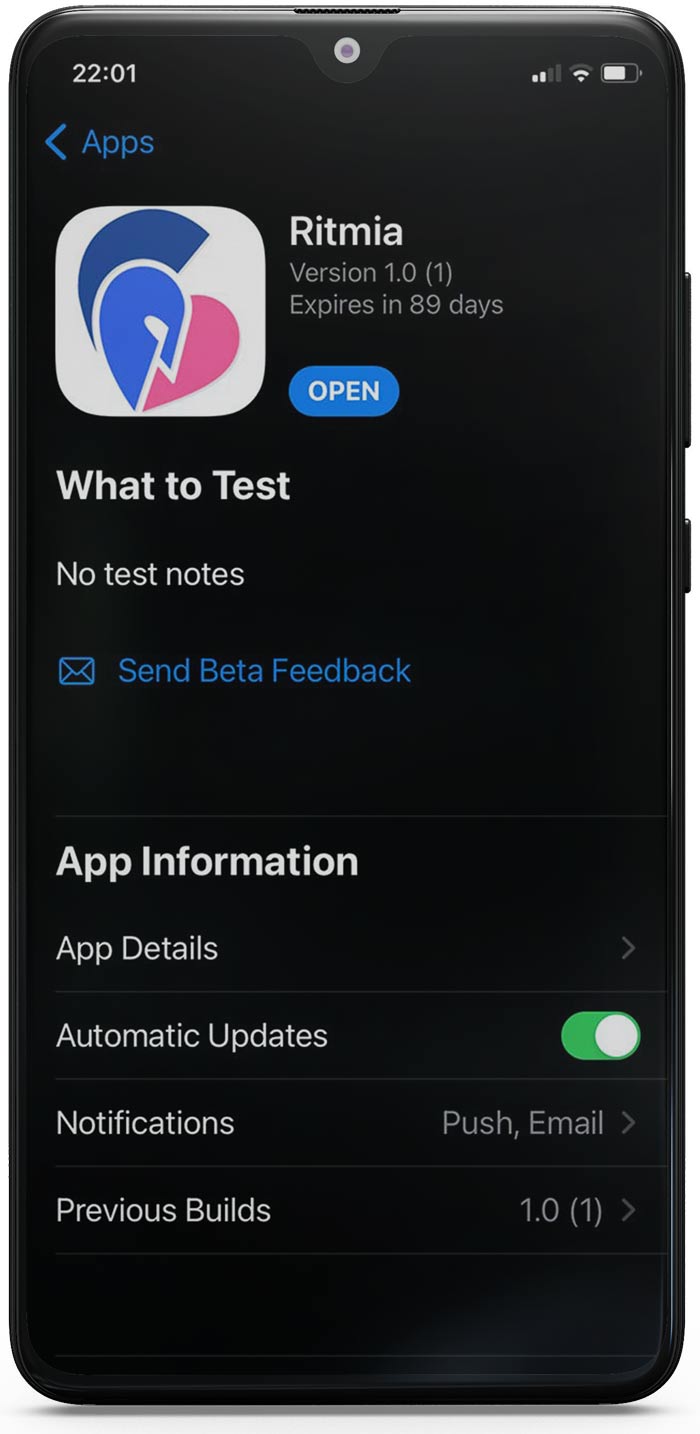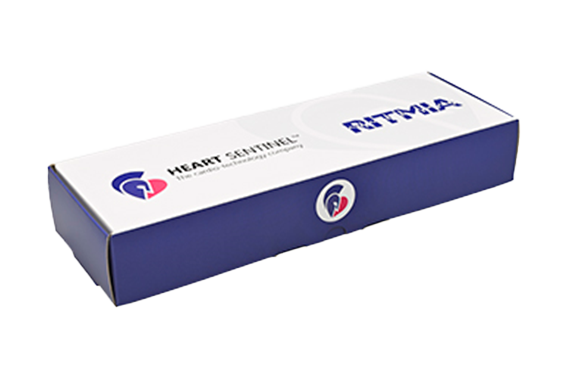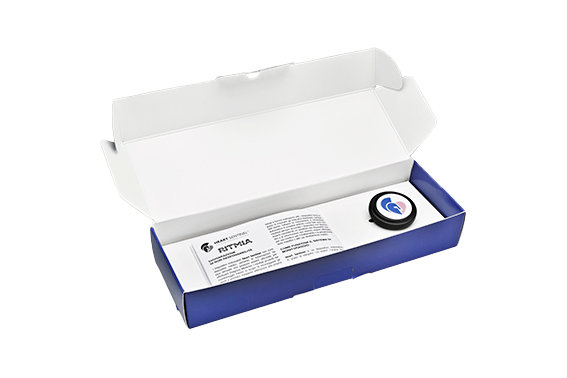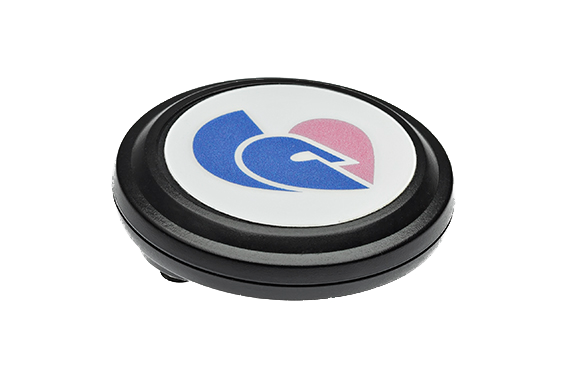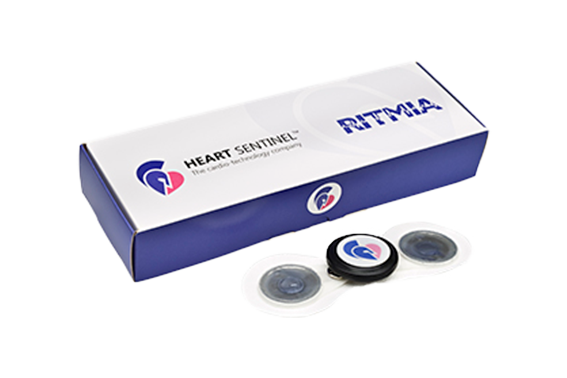Ritmiatm is a heart rhythm monitoring system (consisting of a sensor equipped with patented proprietary software and the dedicated app to interrogate the sensor) capable of automatically recording any episodes of arrhythmias, including atrial fibrillation, which, often unnoticed, can quintuple the risk of cerebral stroke even in healthy people or people who think they are healthy.
Early diagnosis is a prerequisite for timely access to modern therapies and can reduce the risk of stroke by 70%.
Diagnosing atrial fibrillation requires continuous monitoring and that can be practiced:
- through subcutaneous implantable medical devices, which are invasive, expensive and cannot be used on a large scale;
- by employing traditional instruments-such as Holter ECGs-which, however, are poorly suited for medium-term monitoring and are particularly cumbersome for the user
- with the use of Ritmiatm, which, because of its very small size and ease of use, allows for protracted monitoring (up to 2 weeks).
The Ritmiatm sensor can be placed on the chest using the special gel or textile electrode patches that maintain adherence for 5-7 days (then replaceable), or by the use of a standard sports-type heart rate monitor band.
The special Ritmiatm algorithm analyzes the heart rate, recognizes arrhythmias automatically, and autonomously records the ECG trace and duration.
To access the data history and processed recordings, simply bring the Ritmiatm sensor close to your phone after launching the dedicated app (available for Android and iOS smartphones) and click “create report”.
The data and tracings are of high quality, corresponding to that required by cardiologists for proper preliminary assessment. Through the app, documentation can be easily shared between physician and patient.
The winning features of Ritmiatm are:
- the small size (of a coin) and negligible weight (9 grams) and absence of cables
- the convenience of use
- the accuracy and reliability of a special algorithm, developed by cardiologists, which analyzes the data and returns them according to extremely high standards
FAQ
To whom is the use of Ritmia recommended?
- to professional and amateur athletes who want to get a timely picture of the regularity of their heart activity,
- to anyone who wants to perform periodic preventive activity to reduce the risks associated with undetected atrial fibrillation, such as stroke
- to busy and stressful workers who all too often neglect their own health because of time constraints
I am a healthy person, why should I use Ritmia?
Worldwide 33.5 million people of all ages, including very young people, have atrial fibrillation; of these, a substantial number do not know they have this condition, which is often asymptomatic and, as a result, is neglected.
You can use Ritmiatm several times during the course of the year to monitor cardiac activity and perform effective prevention.
How long should I use Ritmia?
Ritmiatm has no contraindications and was created to provide an aid to prevention.
However, it is recommended that you consult with your cardiologist to assess the duration of the continuous monitoring period.
Can I use Ritmiatm at night, when I am washing, playing sports or during the day?
The Ritmiatm sensor is specifically designed to be used during daily life, therefore:
- it can be left in place both during the day and at night
- it is not necessary to remove it in the shower or if you take a bath (you may be required to replace the patch later)
- it can be worn even if you have to take an airplane
- it is recommended to use it during sports activity
When should Ritmia be taken off?
In case of diagnostic examinations (such as: CT scan, MRI, X-ray…) it is necessary to report its use to the doctor before the examination.
Does the patch need to be changed every day?
Does Ritmia drain the cell phone battery?
No, Ritmiatm does not exchange data with your smartphone during the monitoring period; it connects to the device via bluetooth only when you decide to download the collected data, at the end of the monitoring.
Is Ritmia a medical device?
No, Ritmiatm is not a medical device; it is a non-medical cardiac monitoring device, although its technical quality is very high and scientifically tested.
What is Atrial fibrillation?
Atrial fibrillation is the most common cardiac arrhythmia, a frequent unrecognized cause of cerebral strokes. It is often diagnosed only after the fact, after the stroke has occurred. It can be completely asymptomatic and silent, and therefore insidious.
Stroke, in addition to being devastating to the individual, increases subsequent mortality and is a disease with enormous costs to society.
How long does the battery last?
Ritmia uses an easily replaceable and retrievable non-rechargeable battery that lasts for at least 40 total days of monitoring, but often longer. The Ritmia app also reports the percentage of charge; it is not recommended to start monitoring for several days if the indicator reports less than 80 percent charge.
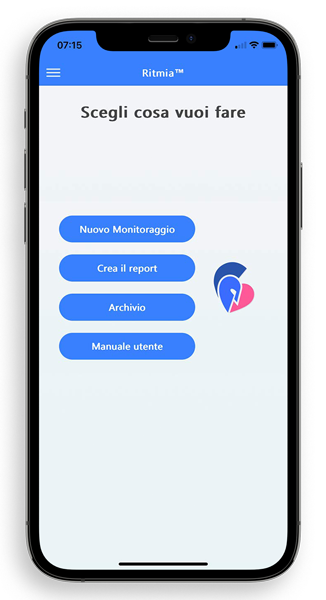
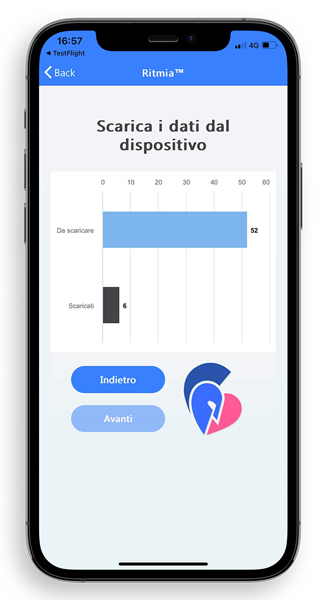
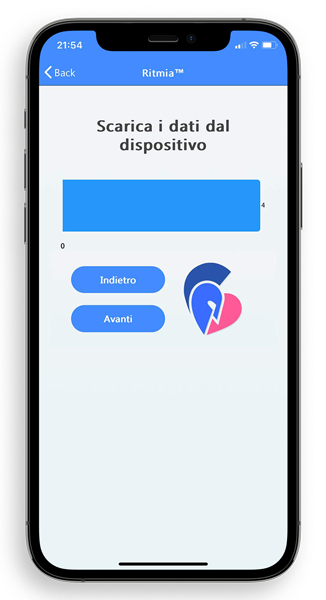
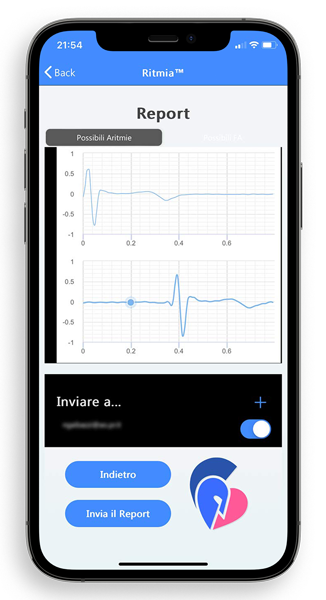
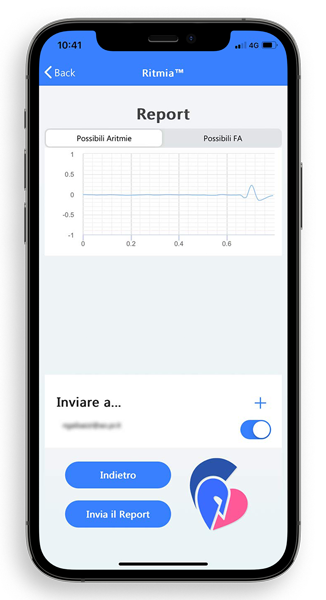
Heart Sentinel srl | Strada Benedetto Cairoli, 15 – 43121 Parma (Italy) | P.Iva 02790040345 | info@heartsentinel.net
